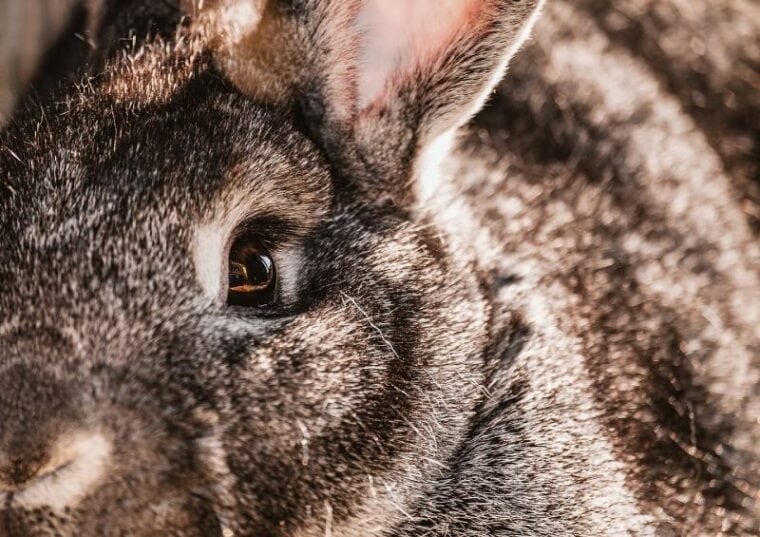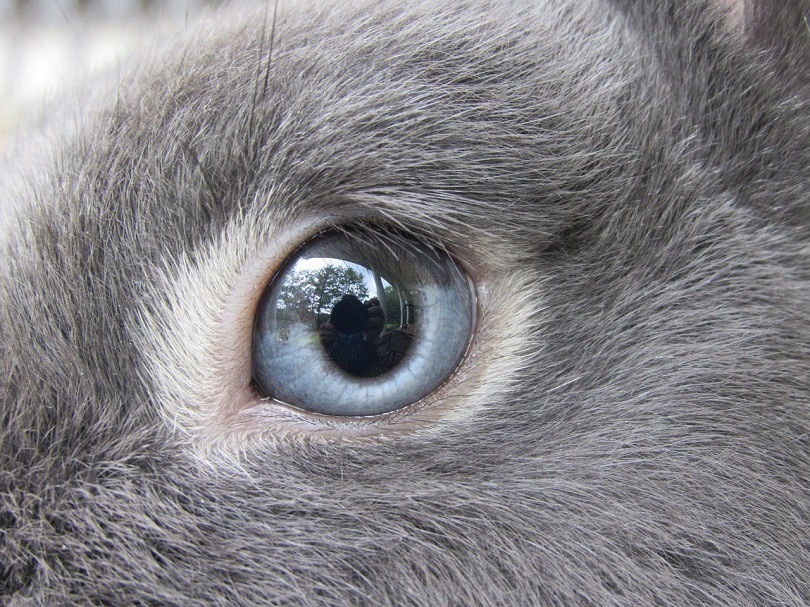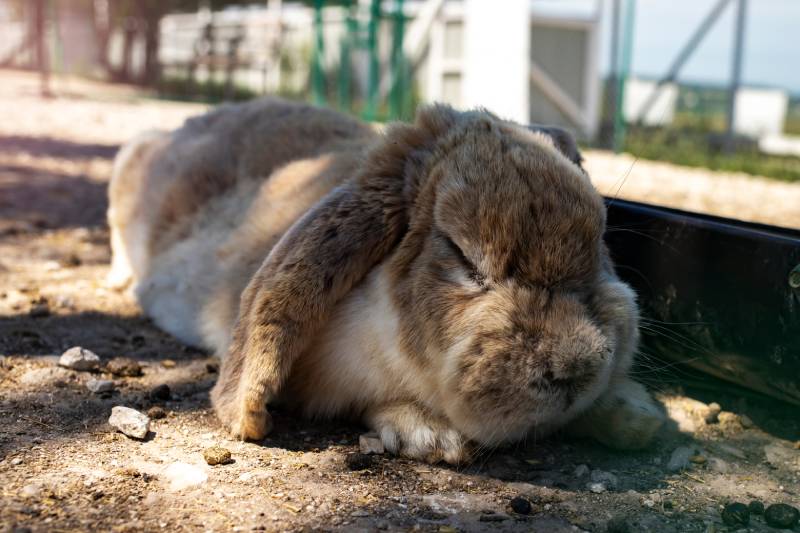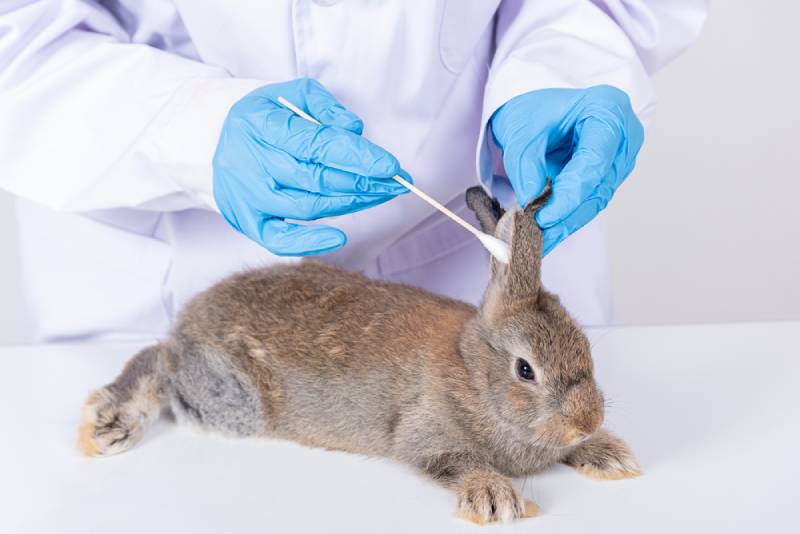
Rabbits have a unique physiology that suits their need for survival in the wild. If you have observed your pet rabbit while he was sleeping, you may have noticed his eyes were still open. Rabbits are capable of keeping their eyes open while they sleep. Keep reading below to learn more about how and why your rabbit sleeps with his eyes open.
Rabbit Eye Anatomy
Many of the structures in a rabbit’s eye are similar to the eye structures that humans have. This includes features such as the cornea, the lens, and the iris. But did you know your pet rabbit has a unique structure that humans don’t?
Rabbits have three eyelids: the upper eyelid, the lower eyelid, and the third eyelid (also known as the nictitating membrane). This third eyelid is inside the corner of your rabbit’s eye and is a thin, semitransparent membrane. This third eyelid is designed to retain moisture and block dust, dirt, and other debris from entering the eye.
Since the membrane is translucent, your rabbit can keep his upper and lower eyelids open to see while still keeping the eye lubricated. This feature is beneficial for keeping a vigilant watch for predators, even while your rabbit is sleeping.

Why Do Rabbits Sleep with Their Eyes Open?
Rabbits are prey animals and are wired to be constantly alert and on the lookout for predators, even when sleeping. Therefore, your rabbit will tend to sleep with his eyes open.
What Do a Rabbit’s Sleeping Habits Look Like?
Rabbits are crepuscular creatures, and around dawn and dusk, they are most active. So, it is not uncommon to notice your rabbit dozing throughout the day and night. To help your rabbit get a restful, peaceful sleep, you must ensure he has a comfortable, private place to lie down. The private space should be secluded from other members of the house, whether human or animal, so your rabbit feels safe and secure before settling in for a nap.
How Important Is Sleep to a Rabbit?
Like many living creatures, a regular sleep schedule is extremely important for your rabbit. If your rabbit is not getting an adequate amount of sleep, it will naturally make him exhausted and agitated.
Even more, a lack of sleep can affect your rabbit’s health. It has been found that insufficient sleep can increase the chances of your rabbit developing a sickness. Likewise, poor sleep can make it more difficult to recover from infections. Rabbits with healthy sleep schedules are more likely to recover from an illness.

How to Know if a Rabbit Is Asleep?
Since your rabbit keeps his eyes open when he sleeps, it can be difficult to tell whether or not he is sleeping. Thankfully, there are some other signs that you can check for to verify that your furry friend is snoozing away.
First, take a look at your rabbit’s body. Is he settled in a relaxed position? Or is his body tense or shifting? If your rabbit is settled, soothed, and unmoving, it indicates he may have dozed off. On the other hand, if he is perched in an alert stance or is often twitching, it is likely that his mind is still alert.
You can also study your rabbit’s breathing. If he appears to be breathing with a slow, regular rhythm, he may be asleep. Relaxed ears are another sign that your rabbit may be asleep. When awake, rabbits have their ears perked up and alert for potential predators. There are many positions that a rabbit may take when he is sleeping. Some rabbits are prone to flopping, which is when they lie on their sides to fall asleep.
Other rabbits prefer to loaf or tuck their front paws beneath their bodies. Or perhaps your rabbit enjoys sprawling out with his back legs to the side and his front legs forward. Any of these positions can indicate that your rabbit is sleeping or preparing to sleep, so knowing how your rabbit prefers to rest will help you determine whether he is in a deep slumber.

Conclusion
Rabbits are amazing creatures with plenty of unique capabilities, such as sleeping with their eyes open. Your rabbit’s third eyelid allows him to keep his eyes open for prolonged periods while maintaining a healthy amount of moisture, which helps him be vigilant about potential predators. While it can be difficult to determine whether or not your rabbit is asleep, learning his other body language cues can help you spot the signs that he is far away in dreamland.
Featured Image Credit: Couleur, Pixabay







